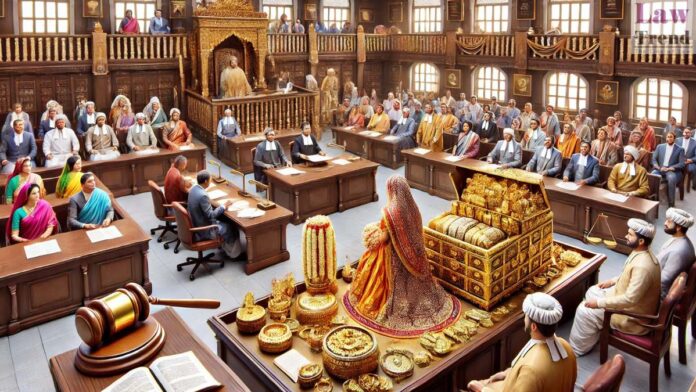In a significant judgment, the Supreme Court of India clarified that giving dowry and traditional presents at the time of a wedding does not necessarily attract the provisions of Section 6 of the Dowry Prohibition Act, 1961. The ruling came in a case decided by a bench comprising Justice Sanjay Karol and Justice J. K.
To Read More Please Subscribe to VIP Membership for Unlimited Access to All the Articles, Download Available Copies of Judgments/Order, Acess to Central/State Bare Acts, Advertisement Free Content, Access to More than 4000 Legal Drafts( Readymade Editable Formats of Suits, Petitions, Writs, Legal Notices, Divorce Petitions, 138 Notices, Bail Applications etc.) in Hindi and English.




